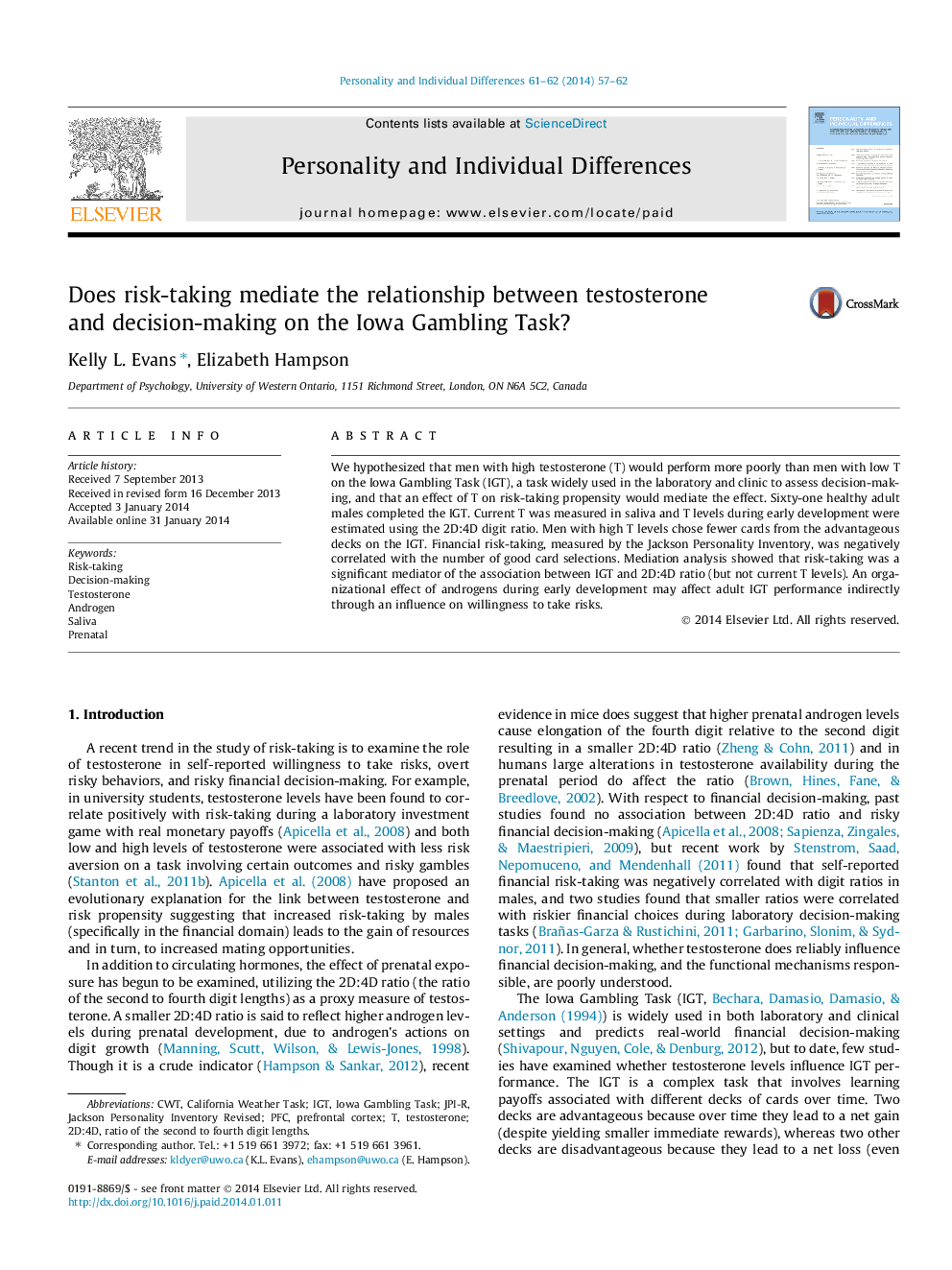| Article ID | Journal | Published Year | Pages | File Type |
|---|---|---|---|---|
| 890535 | Personality and Individual Differences | 2014 | 6 Pages |
•Testosterone (T) levels predicted IGT (Iowa Gambling Task) performance.•Scores on a risk-taking scale predicted IGT performance.•An index of prenatal T (2D:4D ratio), but not current T, predicted risk-taking.•Risk-taking was a significant mediator of the relation between 2D:4D ratio and IGT.•Prenatal androgen exposure may affect IGT performance via increased risk-taking.
We hypothesized that men with high testosterone (T) would perform more poorly than men with low T on the Iowa Gambling Task (IGT), a task widely used in the laboratory and clinic to assess decision-making, and that an effect of T on risk-taking propensity would mediate the effect. Sixty-one healthy adult males completed the IGT. Current T was measured in saliva and T levels during early development were estimated using the 2D:4D digit ratio. Men with high T levels chose fewer cards from the advantageous decks on the IGT. Financial risk-taking, measured by the Jackson Personality Inventory, was negatively correlated with the number of good card selections. Mediation analysis showed that risk-taking was a significant mediator of the association between IGT and 2D:4D ratio (but not current T levels). An organizational effect of androgens during early development may affect adult IGT performance indirectly through an influence on willingness to take risks.
